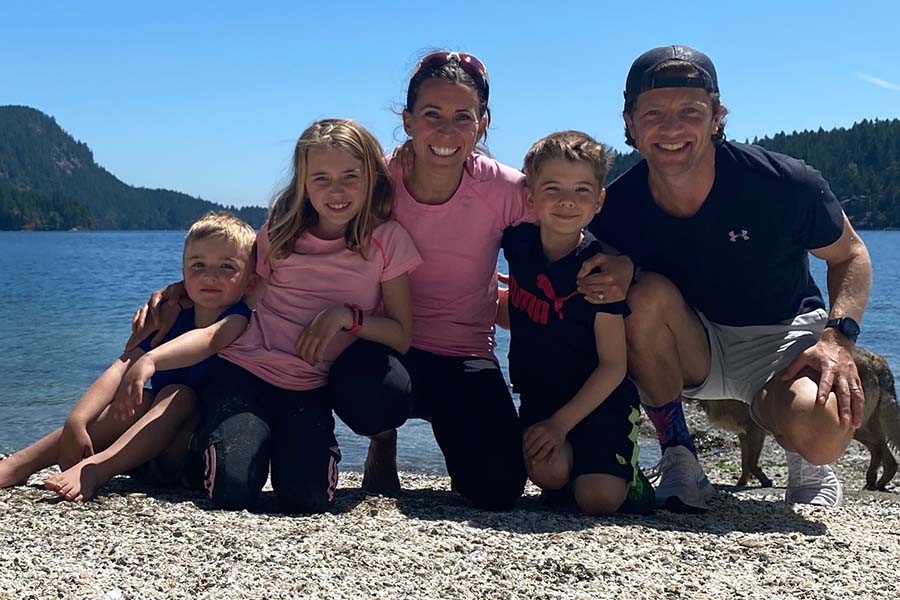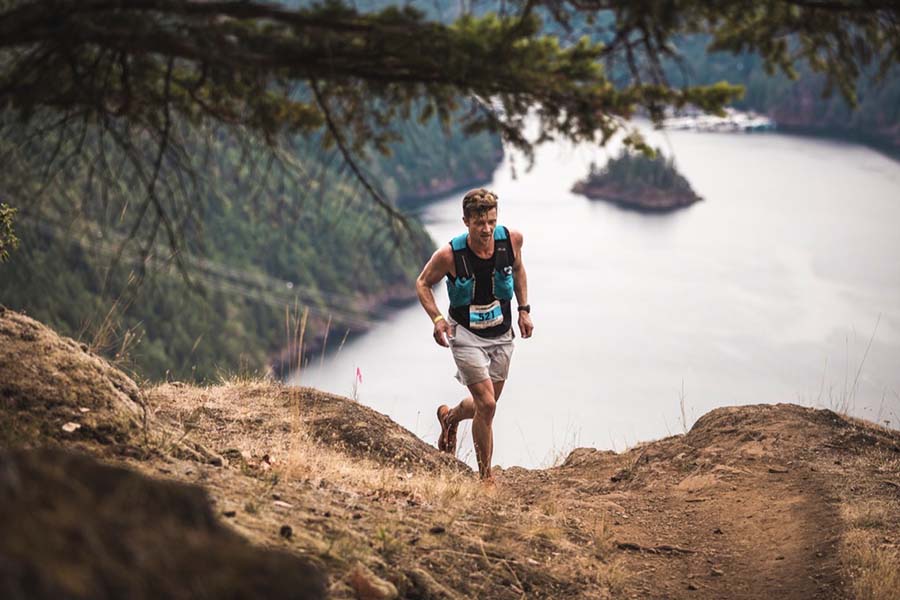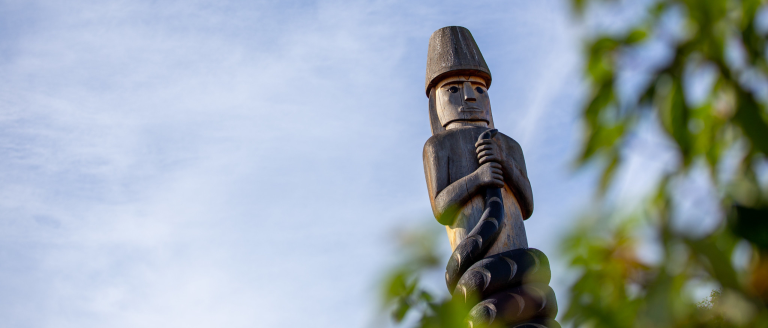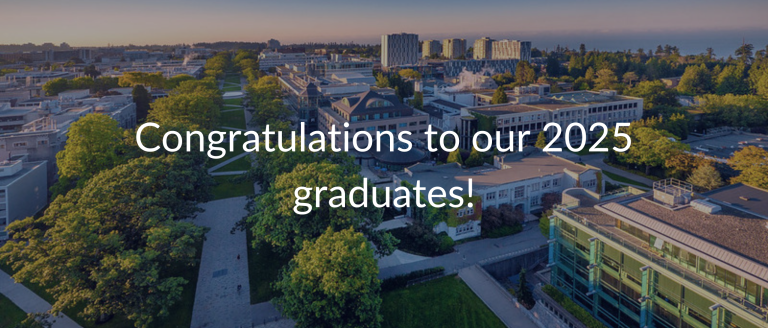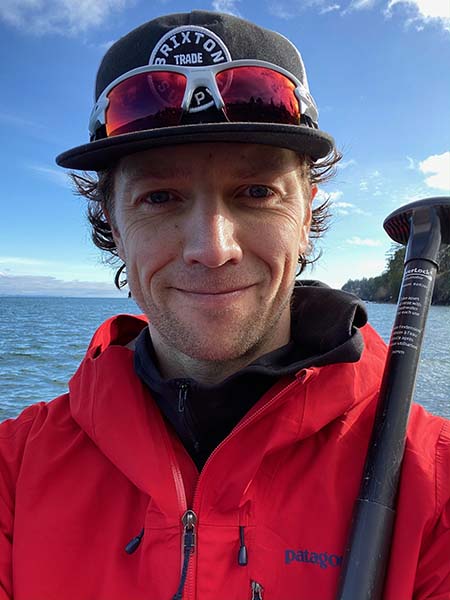
ROBERT BRUNELLE
CLINICAL INSTRUCTOR
Site:
Vancouver Island – Royal Jubilee Hospital and Victoria General Hospital
Dr. Robert Brunelle is a clinical instructor with the UBC Department of Emergency Medicine, an emergency medicine physician at Royal Jubilee and Victoria General Hospitals in Victoria. He works with marathon swimmers and has covered North American Championships and Canadian Open Water trials. He was team physician for Swimming Canada at the Tokyo 2020 Summer Olympic Games and will attend the FINA Aquatics World Championships in the spring of 2022.
Can you share a little bit about your educational background and journey, and how you got to where you are today?
I completed medical school at the University of Alberta and family practice residency in Victoria. I felt drawn to the emergency medicine experience during my time in Victoria, and so I went on to the St. Paul’s emergency medicine program in 2015. I started my practice at Nanaimo Regional General Hospital, and I have been working at Royal Jubilee Hospital and Victoria General Hospital in Victoria since 2017. I’m involved in both undergraduate and postgraduate teaching.
In terms of my involvement in high performance sport, I’ve been travelling primarily with the marathon swimmers for the past five years. I have covered the North American Championships, Canadian Open Water trials, and most recently the Tokyo Olympics. I will be travelling to Japan again for the FINA Aquatics World Championships this spring of 2022.
What inspired you to work in Emergency Medicine?
Like most of us, I was drawn to the challenge, pace, and variety in emergency medicine, but I was mainly inspired by the people in it. I was so impressed not only with the skillset and breadth of knowledge of emergency medicine physicians but also with their resilience, sense of humour, and camaraderie. And, as a junior resident, I was fortunate to connect with a couple of very experienced emergency medicine physicians who helped me see that the career would be a good fit for me, and I’m grateful for their advice!
What excites you most about your work? What are you most proud of?
Connecting with residents is the most rewarding aspect of my work. It’s so exciting to witness a “first time” with a disease or to guide a resident through a new procedure. We’re fortunate to have a fantastic cohort of emergency medicine residents in Victoria, and we have a steady stream of medical students and junior residents rotating through our departments as well. It’s incredibly rewarding to watch them progress through the years, and I truly enjoy being a part of the process. And they keep me sharp! I’m always learning from the residents.
What is one piece of advice that you would give to current trainees?
Be excellent in emergency medicine first, but also find something else you’re passionate about and be great at it. While rewarding, the career is a challenging one—very much a marathon instead of a sprint—and I find that interests outside of medicine help to provide balance and perspective, and no doubt contribute to longevity.
You attended the Tokyo Olympic Games as team physician for Swimming Canada. What was your reaction when you first learned that you’d been selected?
Of course, I was thrilled to be selected, but with the delays created by the pandemic, it was quite some time before my spot was confirmed as Covid-19 had such a widespread impact on qualification events. Competitions were cancelled or postponed worldwide, and it was more than a year before limited racing returned. The FINA Olympic Marathon qualifiers in Portugal five weeks before the games was our final (and only) opportunity to qualify athletes. I was nervous, but I can’t imagine the pressure the athletes were feeling, having not raced in a year and the Olympics on the line. My family and I were out camping, so I set my alarm to Portugal time and burned through my data streaming the event. Happily, our swimmers rose to the occasion confirming their attendance and, consequently, my own at the Tokyo 2020 Summer Olympic Games.
What inspired you to take on this role?
It has felt like a natural fit. I have a background in sport myself (NCAA Athletics) so, even though these athletes are a much higher calibre than I ever was, I understand sport, and the athletes find this relatable. Elite swimmers are obviously an incredibly healthy cohort, but emergencies arise, and the emergency medicine skillset is very relevant. The athletes and staff need to feel confident that everything is well in hand, so I come as prepared as possible for the expected conditions, and I make sure I’ve done proper reconnaissance at the race site.
Can you tell me about your role as team physician for Swimming Canada and what a typical day might look like?
When I arrived in Tokyo, I took over for Dr. Keeler, team physician and chief medical officer for Swimming Canada, who had been covering the pool to that point. Pool days started around 6 am with breakfast and then travel to the Tokyo Aquatic Centre. Competition began in the morning, and athletes would transition between the warmup and competition pools as well as treatment and media areas. I was usually with the athletes pre- and post-races in the warmup pool area but often in the stands during races, which was incredibly exciting, especially during the medal-winning performances. Frequently, athletes would be pulled into doping control immediately following their race, and I would accompany them. Drug testing procedures are highly protocolized; I would observe the process, ensuring everything was done correctly. Then, we would head back to the buses to the Olympic Village for treatment, rest, and food before returning to the aquatic centre for more racing in the afternoon and evening.
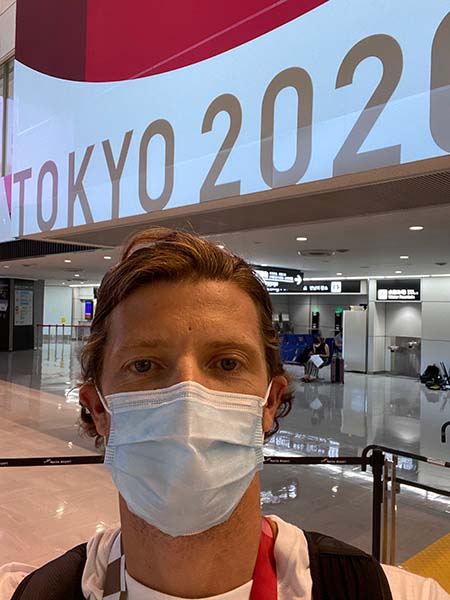
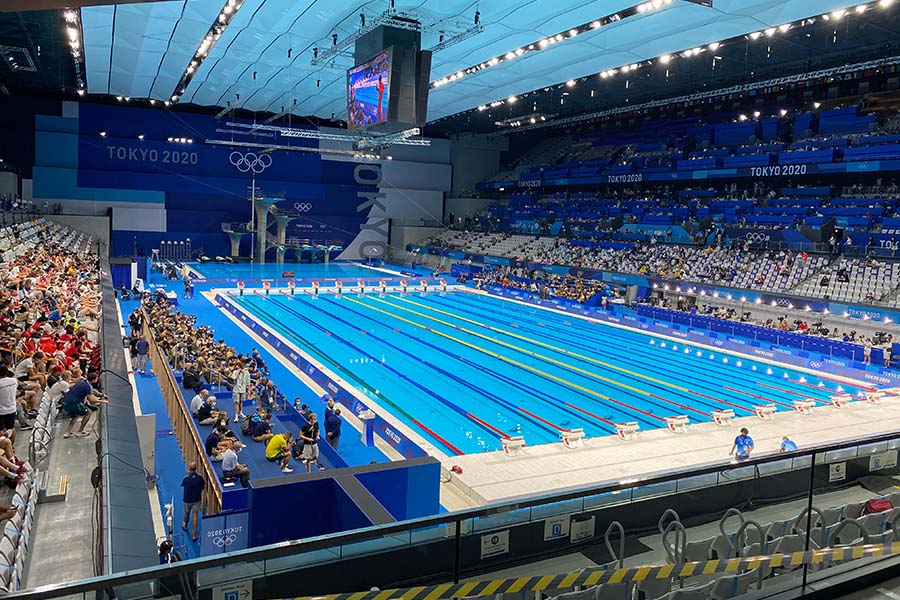
Most of the swimmers and staff departed Tokyo the day following the final pool event leaving only the marathon swimmers and a half dozen staff members. Because of the heat, the marathon was scheduled to take place early in the day, so we spent the week adjusting to this. We set alarms for 3 am and enjoyed a group breakfast before shuttling to the venue (Odaiba Marine Park) to have the athletes in the ocean by 6 am. We had a couple of days where the swimmers could become familiar with the course and get a sense of the conditions and temperature. During this time, I took the opportunity to connect with the Japanese host medical team, reviewing their supplies at the venue and discussing protocols in the event of a swimmer in distress. The language barrier was a challenge, but we managed!
How would you describe the atmosphere at the event? How did the pandemic play into this?
The pandemic affected everything. In addition to daily Covid testing, we had our temperature taken three to six times a day. We would also submit daily health checks and self-report temperature and symptoms. When leaving the village, bus doors would be closed and sealed with the seal to be broken only on arrival at the venue to ensure no interaction with the Japanese public. And then there were the usual cafeteria protocols, metal detectors, security fencing, and guards around the compound.
Despite this, the atmosphere was incredible. It had been such a long two years for athletes of all disciplines who had to deal with cancelled events, quarantines, and months at a time away from friends and family with no guarantee that the games would actually go ahead. So I think everyone was just relieved and happy to be able to compete.
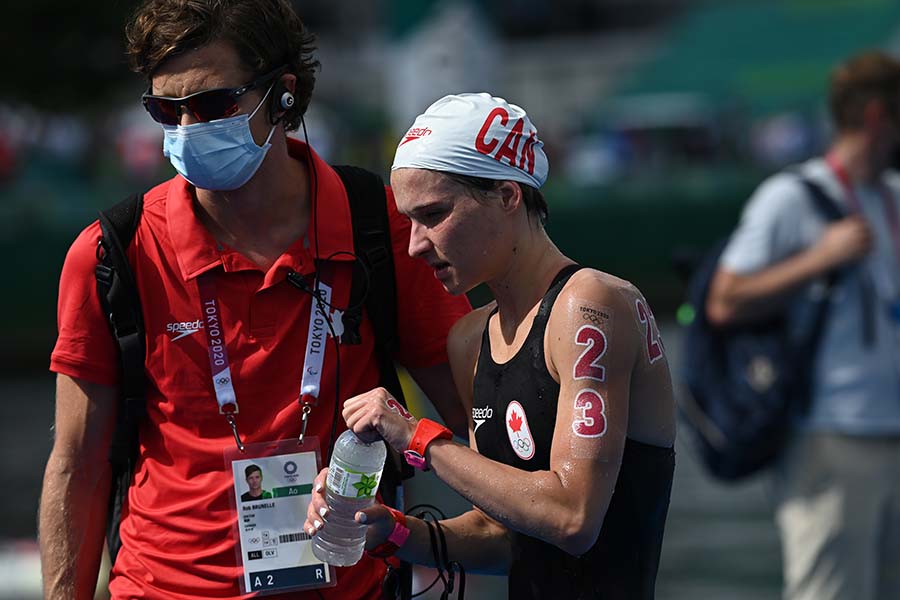
Tell us about your most memorable moments at the event.
There were many! Our relay medals were certainly a highlight. Penny Oleksiak’s overall medal record setting performance was huge. And our young marathon swimmers exceeded expectations in very tough conditions. Overall, it was just thrilling to be in Tokyo surrounded by athletes at the top of their sport. Every morning, I ran a loop around the Olympic Village alongside athletes pre- and post-competition who were doing the same. Living the Olympic experience from inside the Village was such a unique and unforgettable experience, and I’m so grateful to have had the opportunity to be a part of it.
When you’re not working, where can we find you?
I’m usually running or riding trails somewhere around Victoria. We have a vast network with incredible climbs and views. Or I’ll be out swimming, paddling, or at the beach with my family. When the weather is nice (and sometimes when it’s not), we’ll be out on our boat. Increasingly, though, I’m driving my kids around to their many activities.
